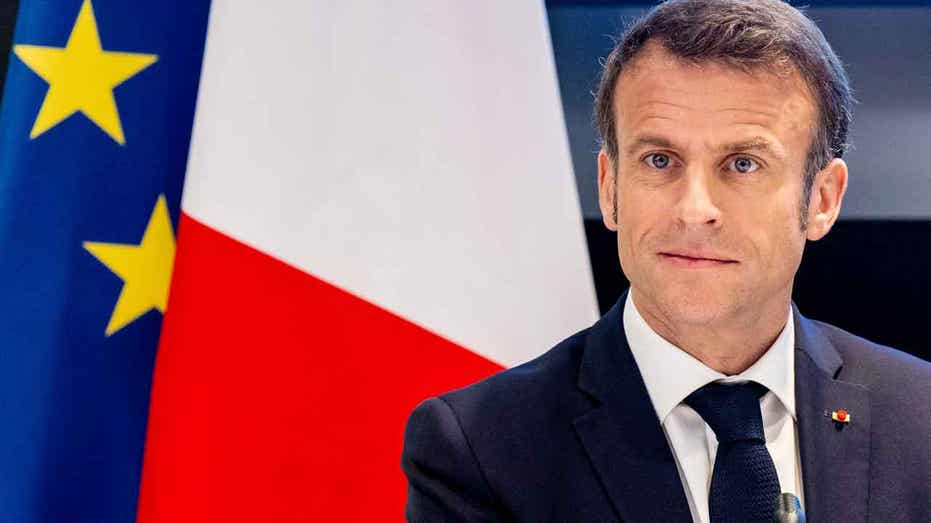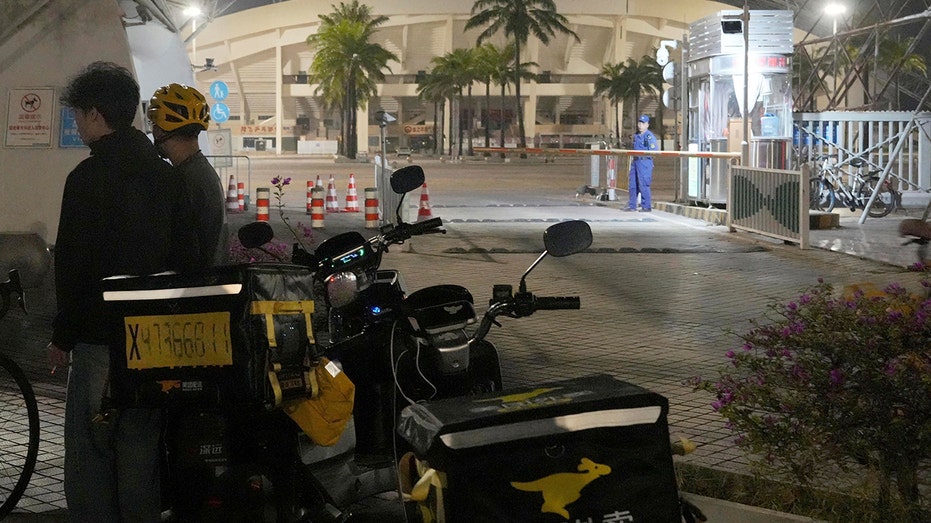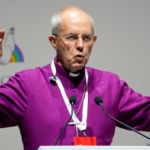President Emmanuel Macron argued Wednesday that protests in France and the Netherlands are a social price that has to be paid as governments in the two countries push ahead with reforms.
“We must sometimes accept controversy,” Macron said. “We must try to build a path for the future.”
He was speaking to members of the French community in Amsterdam, on the second day of a state visit that has been dogged by small protests against his deeply unpopular pension reform, which will raise the retirement age from 62 to 64.
The reforms have sparked massive and sometimes violent protests in France. In the Netherlands, farmers and their supporters protested for months about plans to rein in emissions of nitrogen oxide. At times last year, Dutch farmers used tractors to blockade supermarket warehouses, torched bales of hay alongside roads and dumped garbage including manure and asbestos on highways.
A populist, pro-farmer political party made major gains in recent provincial elections in the Netherlands.
“Sometimes in France we think that we are the only country where there are protests,” Macron said in his speech in Amsterdam. “You who live here know very well that there is also a strong, profound protest movement here.”
Earlier in the day, police tackled and detained a protester who ran, shouting, toward Macron as he arrived at a University of Amsterdam science campus.
FRENCH EMPLOYEES TAKE TO THE STREETS TO OPPOSE RAISING THE RETIREMENT AGE BY 2 YEARS
It was the second straight day that protesters targeted Macron. On Tuesday, demonstrators shouted and held up banners at the start of a speech in The Hague.
The incident Wednesday happened as Macron arrived with Dutch King Willem-Alexander at the university’s science park to visit its Quantum Gases and Quantum Information Lab to discuss quantum technology.
The protester was tackled by a military officer and police before being restrained and taken to a nearby police vehicle. Macron’s visit continued after the man and another protester were detained.
Macron’s wife Brigitte and Dutch Queen Maxima visited a Dutch foundation that works to improve the mental health of young people in the Netherlands. They then toured the Anne Frank House, a museum in the canal-side building where the World War II Jewish diarist hid with her family from Nazi occupiers until they were discovered and deported to death camps. Only Anne’s father, Otto, survived.
Earlier, French and Dutch ministers signed an agreement to strengthen cooperation in moves to develop digital technology and make the countries’ industrial sectors more sustainable.
The Pact for Innovation and Sustainable Growth aims to promote partnerships in areas including “semiconductors, quantum, critical raw materials, sustainable mobility and energy infrastructure,” the Dutch government said in a statement.
Later Wednesday, Macron is scheduled to hold talks with Prime Minister Mark Rutte and visit a sell-out exhibition of paintings by Dutch master Johannes Vermeer at Amsterdam’s Rijksmuseum.










